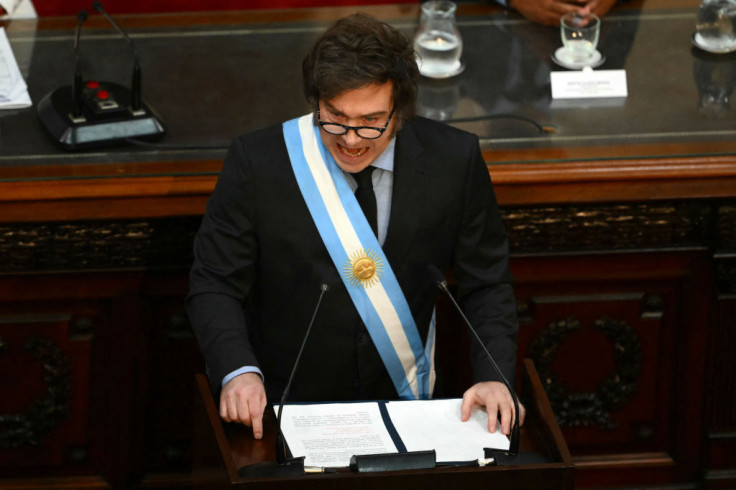
The U.S. Department of the Treasury has designated Venezuela's Cártel de los Soles, which claims is a criminal network linked to authoritarian President Nicolás Maduro, as a global terrorist organization. In the weeks since, several Latin American countries have followed suit.
The latest country to do so is Argentina, which announced on Aug. 26 that it had formally designated the cartel as a terrorist organization. The government said the move reflects international commitments made by President Javier Milei's administration to combat terrorism and bolster protections for the country's financial system.
Infobae noted that Argentina's decision follows similar actions by Ecuador and Paraguay, both of which cited the cartel's involvement in transnational drug trafficking and its ties to organized crime as grounds for the designation.
The outlet also noted that Guyana has expressed concern about the threat the Cártel de los Soles poses to the region, though it has not formally labeled the group a terrorist organization.
"The decision, made in coordination with the Ministry of Foreign Affairs, International Trade and Worship, the Ministry of National Security, and the Ministry of Justice, is based on official reports documenting transnational illicit activities—including drug trafficking, smuggling, and the illegal exploitation of natural resources—as well as links to other criminal organizations in the region," the Argentine government said in a statement.
Additionally, the government reaffirmed its commitment to peace, stability, and security across Latin America, emphasizing its adherence to international law and relevant multilateral agreements.
What is the Cártel de los Soles?
Despite its name, the Cártel de los Soles is not a conventional drug cartel like the Sinaloa Cartel once led by Joaquín "El Chapo" Guzmán. Instead, it is a loosely organized criminal network embedded within Venezuela's military and political institutions that facilitates and profits from drug trafficking.
According to investigative organization InSight Crime, the cartel operates across multiple branches of Venezuela's military, often shielded, coordinated, or even directed by political figures. The network and its leadership are constantly shifting, shaped more by military rotations and political loyalty than by any formal hierarchy
U.S. security agencies have identified Maduro as a central figure in the group, as well as other senior Venezuelan officials, including Interior Minister Diosdado Cabello Rondón, former military intelligence chief Hugo Armando Carvajal Barrios, and former general Clíver Antonio Alcalá Cordones.
In June, Carvajal Barrios pleaded guilty in a U.S. court to conspiracy to import cocaine and participating in narco-terrorism in coordination with the Revolutionary Armed Forces of Colombia (FARC)—reinforcing allegations of ties between the Venezuelan government and transnational criminal organizations.
Rising tensions in Latin America
While several Latin American governments have taken independent action against the Cártel de los Soles, regional tensions have intensified following the deployment of U.S. assets to the region.
Colombian President Gustavo Petro has warned that any U.S. military action against Venezuela would be considered an attack on Colombia as well.
"Any military operation not approved by brotherly countries is an aggression against Latin America and the Caribbean," Petro said. "It contradicts our fundamental principle of freedom. Freedom or death, Bolívar proclaimed, and the people rose."
Similarly, Mexican President Claudia Sheinbaum has consistently opposed any U.S. military intervention in Mexico aimed at combating drug cartels.
"Mexico is a free, independent and sovereign nation, and no foreign government has the authority to violate our sovereignty," Sheinbaum said last week.
© 2025 Latin Times. All rights reserved. Do not reproduce without permission.







